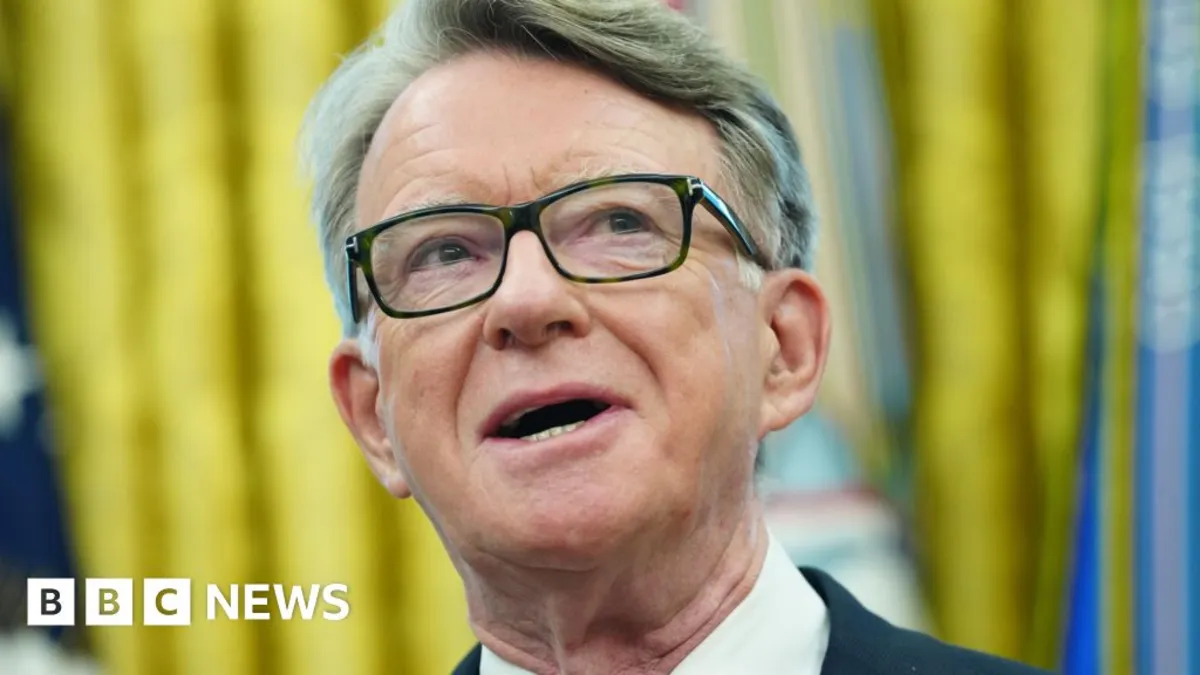
Prime Minister Sir Keir Starmer is currently facing significant scrutiny over his controversial appointment of Peter Mandelson as the UK's ambassador to the United States. This scrutiny has intensified following revelations about Mandelson's past connections with the late convicted paedophile Jeffrey Epstein, which ultimately led to his dismissal. Sir Keir's decision to appoint Mandelson came under fire after it was disclosed that the Labour peer had been supportive of Epstein during his legal troubles in 2008, a fact that had apparently been overlooked during the vetting process.
The government has asserted that the new information regarding Lord Mandelson's relationship with Epstein was not known at the time of his appointment last year. However, the Conservative Party is demanding transparency, calling for the release of all vetting materials related to Mandelson's appointment. They are questioning what Sir Keir knew prior to supporting Mandelson during Prime Minister's Questions, emphasizing the need for accountability from the Prime Minister's office.
In response to the growing criticism, a spokesperson for the Prime Minister clarified that the vetting process is managed by government departments, disputing any claims that Downing Street had direct involvement. The spokesperson further noted that Sir Keir found the emails exchanged between Mandelson and Epstein to be "reprehensible."
The situation has also sparked internal dissent within the Labour Party. Some Labour MPs have expressed their disappointment over the initial appointment of Mandelson, as well as the time it took for Sir Keir to terminate his position once new information surfaced. Former deputy leadership contender Paula Barker stated that the delay in sacking Mandelson has contributed to a decline in public trust and confidence in the government.
Since Mandelson's appointment as ambassador in December, questions regarding his past friendship with Epstein—well-known within political circles—have persisted. Reports indicate that this friendship, which continued even after Epstein's conviction, was a significant consideration in the Prime Minister's decision-making process. According to sources, the implications of Mandelson's connection to Epstein were discussed extensively before his appointment.
In a letter addressed to his staff, Lord Mandelson expressed his deep regret regarding his departure from the British embassy in Washington, D.C. He stated that being an ambassador was the "privilege of my life," and conveyed his remorse about his association with Epstein two decades prior. The sacking came in the wake of emails published by media outlets, including the Sun and Bloomberg, which revealed that Mandelson had encouraged Epstein to fight for an early release from prison shortly before he began serving an 18-month sentence.
The decision to remove Mandelson was reportedly made during a meeting between the Prime Minister and Foreign Secretary Yvette Cooper. Government officials have maintained that the information released on Wednesday was not available during the appointment process, as it originated from a long-closed email account. Mandelson himself did not have access to this information, which was reviewed by the Prime Minister only after the emails became public.
Despite the controversy, Mandelson had been perceived as effective in his role, particularly in navigating relations with the Trump administration. His dismissal comes at a critical time, just days before a scheduled state visit to the UK by US President Donald Trump. Following Mandelson's exit, British diplomat James Roscoe will take over as interim ambassador, overseeing the visit. A White House official has confirmed that Trump's state visit will proceed as planned, with no changes resulting from Mandelson's departure.
The resurfacing of Mandelson's friendship with Epstein gained renewed attention following the release of documents by US lawmakers, which included a letter in which Mandelson referred to Epstein as his "best pal." The fallout from this scandal continues to unfold, raising questions about the implications for both the Labour Party and the UK government as a whole.